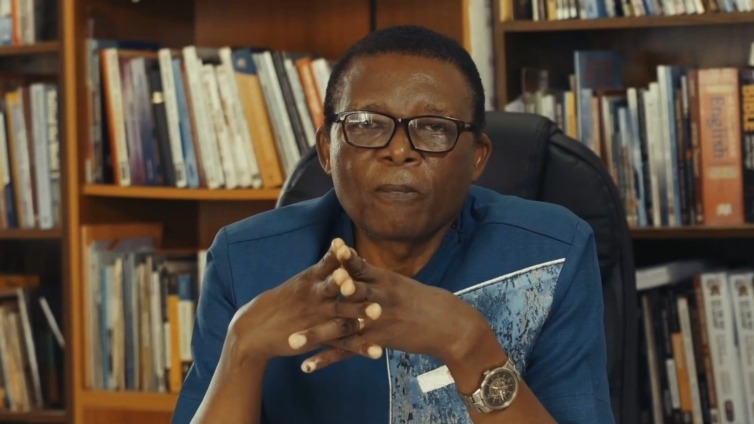Young writers, in particular, are being urged to view their craft not merely as a means of self-expression or a pathway to fame, but as a profound responsibility to humanity.
In an age marked by rapid technological advancement, social upheaval, and environmental crises, the role of the writer has never been more critical.
Veteran writer, Lawrence Darmani has urged young, unpublished writers to consider their craft a responsibility to humanity, insisting that those gifted with the ability to write must not abandon their work.
The author emphasized the importance of resilience and focus on today’s fast-paced, distraction-filled world. “If you have been given the calling, the skill, and the inspiration to write, you owe it to humanity to write so that others can benefit from it,” he said.
“People are actually waiting to read your work, so do not abandon it. Even if you reach a point where things get tough, still get back to it and finish.”
Lawrence Darmani
Words have the power to shape opinions, challenge norms, and inspire change. Through storytelling, poetry, and essays, writers illuminate issues that otherwise remain in the shadows.
Young writers, with their fresh perspectives and innovative ideas, have a unique opportunity to address pressing global challenges such as climate change, social justice, and mental health.
By considering their craft as a responsibility, they harness the power of words to foster understanding and empathy among diverse audiences.
Young writers often represent the voices of marginalized communities and underrepresented groups. By taking on the responsibility of their craft, they amplify these voices and bring attention to issues that need urgent consideration.
Writing serves as a platform for advocacy, allowing young authors to challenge stereotypes, dismantle prejudices, and promote inclusivity. This responsibility extends beyond mere storytelling; it involves using their skills to create a more equitable and just society.
Ethical Implications of Writing as Young Writers

With the power of storytelling comes ethical responsibility. Young writers must grapple with the implications of their words and the narratives they choose to create. This includes being mindful of the impact their work has on individuals and communities.
Writers should consider the potential consequences of their narratives, ensuring that their work promotes positive change rather than perpetuating harm or misunderstanding.
Lawrence Darmani highlighted the impact of distractions – ranging from social media to everyday responsibilities – on writers’ ability to complete their projects.
However, he urged writers to treat writing as a ‘jealous skill’ that demands time, dedication, and consistency.
“You must make writing a distraction against all other distractions. If I have set time aside to write, then my writing becomes the reason I am unavailable for anything else.”
Lawrence Darmani
As young writers take on the responsibility of their craft, they should strive for authenticity in their representation of characters and communities.
This involves conducting thorough research, engaging with individuals from the communities they wish to portray, and avoiding stereotypes.
Authentic representation not only enriches storytelling but also honors the complexity of human experiences, fostering a deeper connection with readers.

Young writers are encouraged to reflect on their motivations and the purpose behind their writing. By identifying the issues, they are passionate about and the messages they wish to convey, they align their craft with a sense of responsibility to humanity.
This purpose-driven approach leads to more meaningful work that resonates with readers and contributes to societal progress.
Young writers benefit from connecting with like-minded individuals and organizations that share their commitment to social responsibility.
By collaborating with other writers, activists, and community leaders, they amplify their impact and create a supportive network that encourages growth and innovation.
Writing workshops, literary festivals, and online platforms serve as spaces for young writers to share their work, exchange ideas, and inspire one another.
In today’s digital age, young writers have unprecedented access to platforms for sharing their work. Social media, blogs, and online publishing platforms allow them to reach global audiences and engage with readers in real-time.
As the world grapples with complex challenges, young writers are called to embrace their craft as a responsibility to humanity.
Writing is not just an art form; it is a tool for change, and young writers have the potential to shape the future through their creativity and commitment to social responsibility.
By viewing their craft through this lens, they inspire others, provoke thought, and ultimately make a lasting impact on the world around them.
READ ALSO: NIA Urges Use of Biometric Verification for Secure Transactions





















